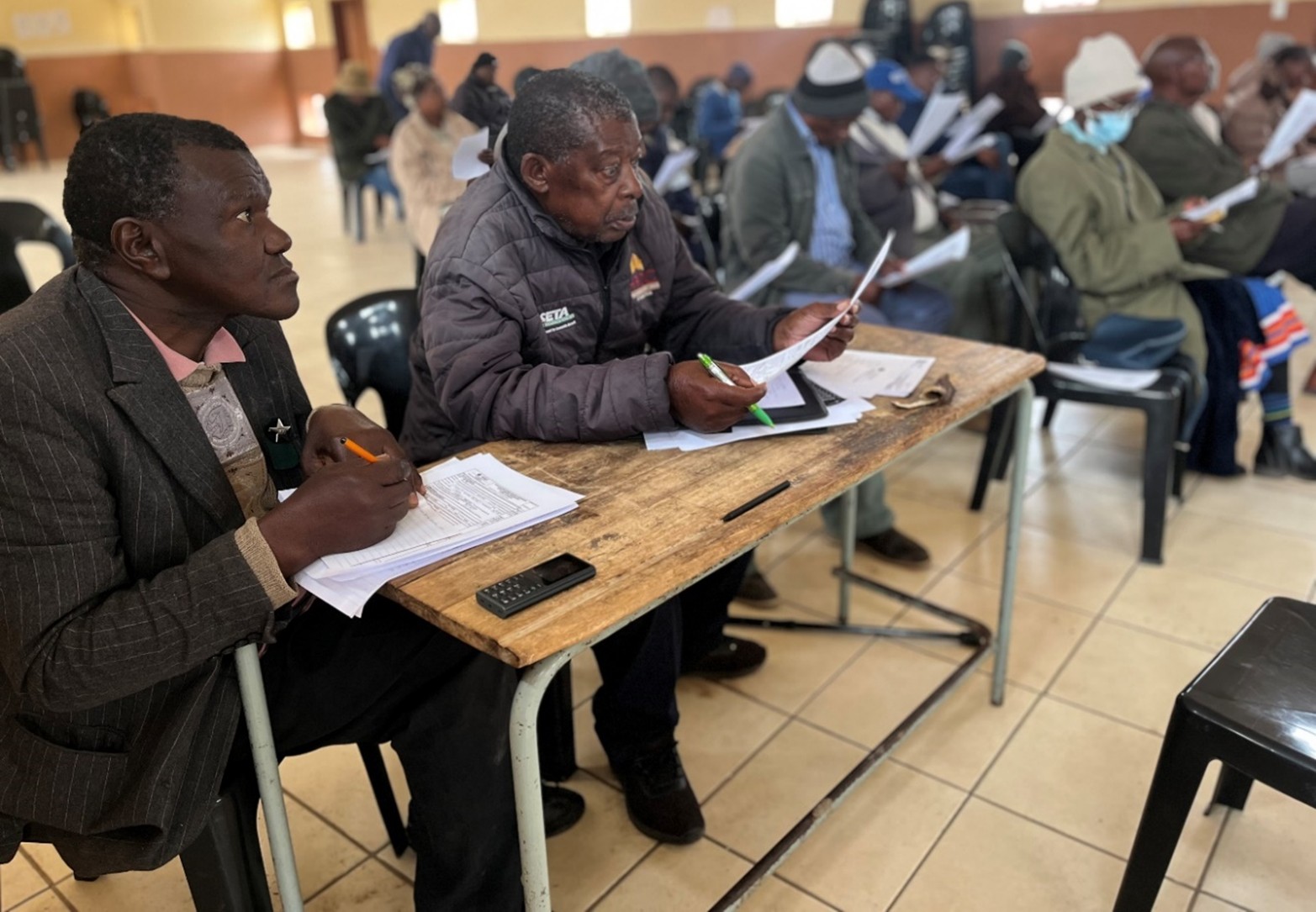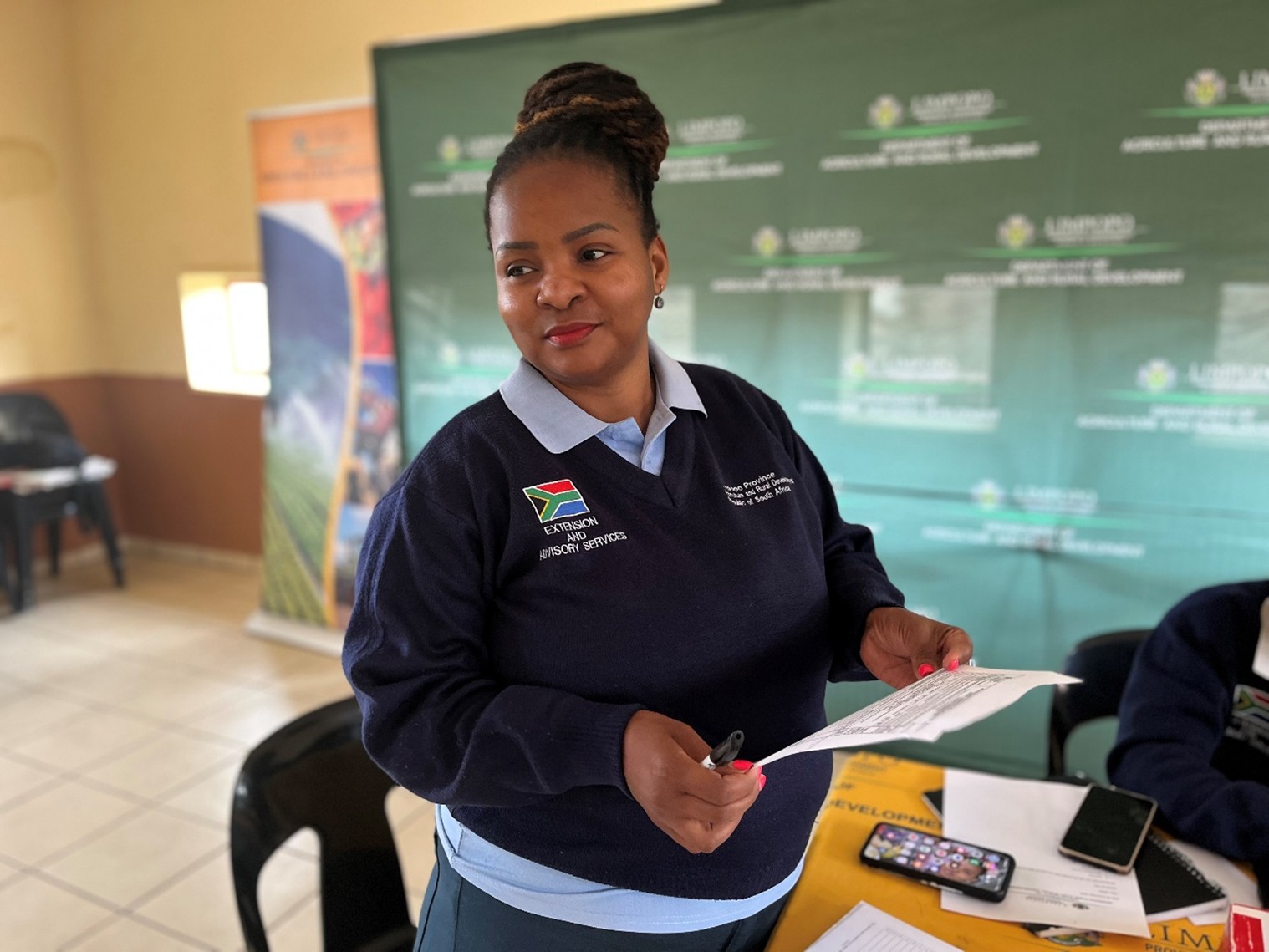By Maphuti Machabaphala

Livestock Farmers of Ga-Tibu being guided through the Farmer Support Programme application form.
The Capricorn East Agro Ecological Zone office recently hosted an information-sharing session with farmers of Ga-Tibu in Bochum, under the Molemole Local Municipality. The workshop focused on improving farmers’ knowledge of proper cattle selection and the importance of culling as part of sustainable livestock management.
Mr. Mpati Kgathatso opened the session by underscoring the importance of animal identification and brand marking. He explained that brand marking is not only vital for record keeping and herd management, but it is also a legal requirement for all livestock farmers. Farmers were guided through the difference between tattooing and branding for small and large stock, and a demonstration was conducted to show the process of where and how to apply brand marks. Mr. Mpati further explained that branding safeguards against theft and disputes over ownership or lineage of animals. He encouraged farmers who had not yet registered a brand to do so, while also highlighting the procedures for change of ownership applications.
Mr. Ledwaba Tebogo then addressed the subject of livestock culling, noting that it is a necessary practice when animals display ill health, unwanted genetic traits, poor adaptability, or low productivity. He emphasised that culling not only improves herd performance but also helps reduce costs for farmers who may otherwise struggle with animals that fail to thrive under harsh weather or grazing conditions. Culling, he added, enhances overall herd quality by eliminating weaknesses and retaining stronger traits. He acknowledged, however, that emotional attachments often discourage farmers from culling, but stressed that the long-term benefits outweigh the challenges.
On cattle selection, participants were reminded that choices should be guided by both environmental conditions and the market. Mr. Makololo Maleepile explained that factors such as growth rate, fertility, adaptability, milk production, and genetic makeup must be considered when selecting cattle for breeding. He advised farmers to prioritise breeds with low maintenance costs and good mothering ability, ensuring that the genetic pool of their herds remains strong and resilient.
Concluding the workshop, Ms. Makola Lydia encouraged farmers to take full advantage of the Farmer Support Programme, which continues to offer tangible support and resources across farming communities. She demonstrated how to correctly complete application forms for support services, stressing the importance of attaching required documents to avoid delays.
The session equipped Ga-Tibu farmers with practical tools to make informed decisions on cattle management, ultimately promoting healthier herds and more sustainable livestock farming practices.



